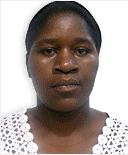Other stories
Dr Srinath Satyanarayana
Operations Research Fellow, The UNION, South-East Asia Regional Office

Srinath Satyanarayana understands the needs of communities affected by TB not only as a medical doctor but in a very personal way. Five years ago, while working with India's national TB programme in Andhra Pradesh, he was diagnosed with spinal TB and went through eight months of treatment, which resulted in a cure.
A native of the town of Kolar Gold Fields in southern India, Srinath received his medical education at Mysore Medical College and a postgraduate degree in community medicine from the ALL India Institute of Medical Sciences. During his training, he became convinced that the only way to improve the health of people in India - and particular, to reduce the toll of TB - was through a systems approach.
In Andhra Pradesh, as a WHO medical consultant to India's national TB programme, he helped the local programme mangers in designing and implementing a research project to systematically analyze why nearly one in ten people who had received a TB diagnosis via smear microscopy were not registered for TB treatment. The study found that the problem often arose because health workers were not obtaining enough information from patients about how to contact or find them; and consequently many patients literally disappeared from sight. The study helped local programme managers take corrective actions. In 2007 he was recruited by the Central TB Division of the Ministry of Health and Family Welfare as a WHO-RNTCP-Medical Consultant to assist the programme in analyzing routine programmatic data for improving the quality and reach of TB services.
Since 2009 he has worked in parallel as a research fellow with The Union and in that role continued with research aimed at improving TB care by analyzing gaps and addressing them. In one key study, he and his colleagues profiled the characteristics associated with patients interrupting their care during TB retreatment. His next project will focus on people with multidrug-resistant TB - looking at how many people are successfully diagnosed and treated with the objective of improving services. In addition, he is also working towards strengthening operational research capacity of other colleagues working on TB in India.
Srinath, who serves as a TB-affected community member on the Country Coordination Mechanism of the Global Fund to fight AIDS, Tuberculosis and Malaria also serves on the Union Ethics Advisory Group. His professional goal: to translate evidence from operational research into improving TB care for all people, no matter who they are or where they live.



